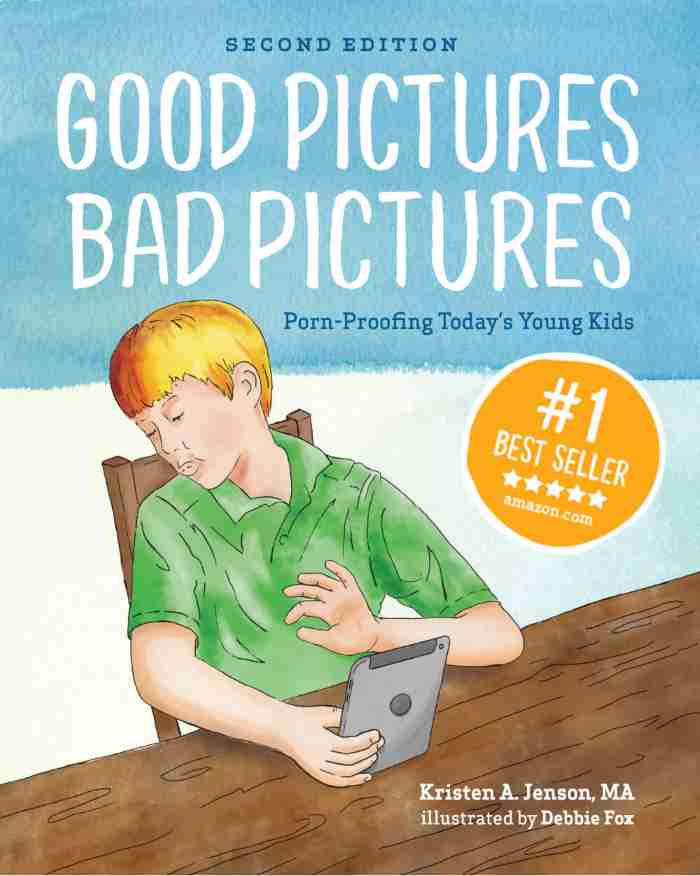

3 Scary Things Haunting Your Kids Online
Halloween is just around the corner, which means that you may be carving pumpkins, getting costumes ready, buying candy, and thinking about how to keep your kids safe while they’re out and about trick-or-treating. But have you thought about how to keep them safe in your own home? Here are three scary things haunting your kids online and how to keep them safe:

1) Separating Perception from Reality: New in Pornography Research
Think you know what your kids have been exposed to online? It may not be what you think! Sometimes there may be a disconnect between what we think we know and what is actually happening.
Check out the latest from a survey of 2,284 children and their parents commissioned by the British Board of Film Classification (BBFC):

Were you surprised by any of the gaps between what parents thought and what their children reported about pornography?
It’s easy to start to skip over the news or headlines because our minds can only absorb so much. One thing we have to guard against as parents in the digital age is being desensitized to what is happening online. This latest research shows we can’t let our guard down--Please stay alert!
Tips for Parents:
1) Have the pornography conversation (again). The British research serves as a sober reminder that our kids need an ongoing conversation. If you’ve started that conversation, great work! Keep going, and try to clarify your child’s understanding by asking some open-ended questions. Ask them directly if they’ve seen any inappropriate pictures lately. For help getting started, check out our FREE guide: How to Talk to Kids About Pornography: Quick Start Guide.

Are You Missing These 5 Easy Teaching Moments to Protect Your Kids from Pornography?
It’s Awkward, and It’s OK: You CAN Talk to Your Kids About Pornography
The Dangers of the ONE and ONLY Porn Talk: 4 SMART Tips for Regular Conversations with Kids
2) Don’t underestimate the lure of pornography on your daughter. Porn can draw both boys and girls into addiction, and similar levels of boys and girls have seen pornography. We can’t let our guard down simply because we have daughters!
Related: Silent Struggle: 4 Ways Girls Get Pulled into Using Porn (and what you can do to help them)
[[CTA]]
2) Cyberbullying: When Classmates and Other Friends Turn on Your Child
When Christine was scrolling through her eleven-year-old daughter’s phone one afternoon, she found a series of disturbing texts. “You should really lose some weight. Everyone says you’re fat.” “Ugly hairstyle today.” “You should just stay home today. No one cares if you are here anyway.”
What was most shocking to Christine was that the texts were coming from her daughter’s friend! When she was over at their house, her daughter’s friend was kind, funny and seemed to get along very well with her daughter. What was the purpose of these hurtful texts?

Unfortunately, what Christine’s daughter is experiencing is not uncommon! According to the Pew Research Center, 59% of U.S. teens report being targeted for online harassment. Cyberbullying can take the form of:
- Offensive name-calling
- Spreading of false rumors
- Receiving unwanted and unsolicited explicit images
- Intrusive personal questions
- Physical threats
- Having images sent to others without consent

Tips for Parents:
1) Above all, protect your child’s mental and emotional well-being. While there is no “one-size-fits-all” parenting, many parents decide to not allow their middle schooler to have a social media account. There are many good reasons for delaying: for one, we know that depression is linked to social media use among young people. Middle schoolers are more vulnerable to seeking affirmation from others (even parents struggle with FOMO – Fear of Missing Out!) and also have a harder time distinguishing reality from the distorted views portrayed on social media.
2) Limit the number of hours online by creating “tech-free zones” such as the dinner table, evening family time and bedtime. Keep bedrooms “tech-free,” since nighttime and tiredness can lower your child’s inhibitions when online, not to mention she loses valuable sleep!
"Young people are already pretty impulsive; that’s how they’re wired. The more time they spend online, the more comfortable they get and the less careful they may become — especially late at night when they’re tired."
3) Sextortion and Online Grooming: When Sexual Predators Target Your Son or Daughter
The tactics of deception and manipulation

The “playbook” for online predators typically involves some form of deception and manipulation: a groomer sets up a fake profile, using a fake picture (e.g., a 44-year-old man uses a photo of a young female claiming to be 13 years of age), and then enters a game, chat or uses social media to find young children or teens. The predator befriends a child by asking questions about their hobbies or interests as a way to gain trust. He also is well-versed in the things that kids love to talk about, such as favorite sports teams, movies, video games, or popular music artists. Eventually, the predator may try to meet up with the child at some point.
Exploiting children’s natural curiosity about sex
Groomers know how to exploit children’s vulnerabilities, especially in the area of sexual curiosity. Predators may start to use pornography as part of the grooming process in order to lower a child’s inhibitions.
“It’s vital that parents get to know and understand the technology their children are using and make sure they have appropriate security settings in place. They should also talk to their children about sex and relationships and the possible risks and dangers online so children feel able to confide in them if something doesn’t feel right.” Chief Executive Javed Khan, Barnardo’s
Related: Sextortion Scams and Teen Suicide: One Father's Urgent Warning
Quick Facts
- The FBI is seeing an increase in sextortion among teens because of video games. Offenders are using instant messaging to contact kids and offering them coupons or online credits in exchange for photos.
- Live streaming apps such as TikTok are contributing to the online grooming of younger and younger children.
- More than one quarter (28%) of children aged 10 admitted live streaming content over the internet using apps meant for people over the age of 13.
Related: 7 Ways Predators and Porn will Target Kids in 2019 – Be Prepared Not Scared!
Tips for parents
- Use the tech tools (e.g., Bark) that are available to you as a parent to monitor your child’s online activity.
- Talk to your children about your family’s safe video chat rules.
- Make sure your kids know how to guard their social media accounts. One study found that “less than half of children aged 12 to 15 say they know how to change their settings to control who can view their social media.”
- Learn more about how your child can be groomed and how to help him protect himself from online predators.
- If your child is being targeted by an online predator, contact the National Center for Missing and Exploited Children from anyplace in the U.S. 1-800-THE-LOST (1-800-843-567) or leave them a CyberTip.



Good Pictures Bad Pictures
"I really like the no-shame approach the author takes. It's so much more than just 'don't watch or look at porn.' It gave my children a real understanding about the brain and its natural response to pornography, how it can affect you if you look at it, and how to be prepared when you do come across it (since, let's face it... it's gonna happen at some point)." -Amazon Review by D.O.








